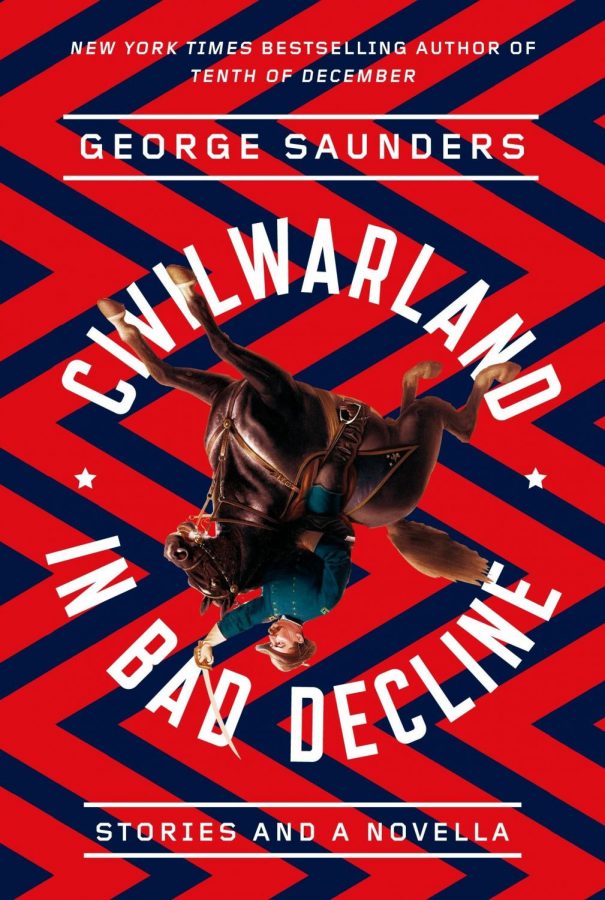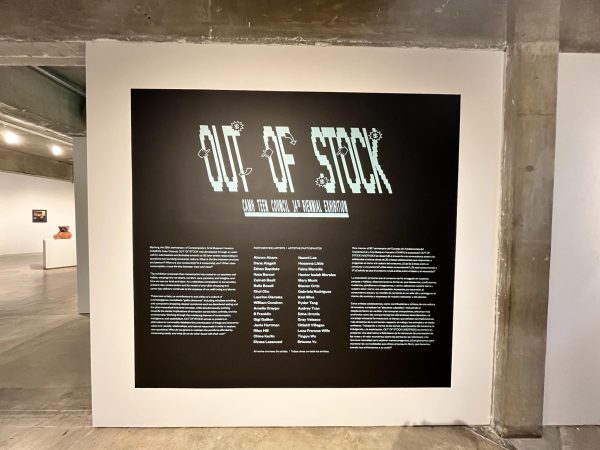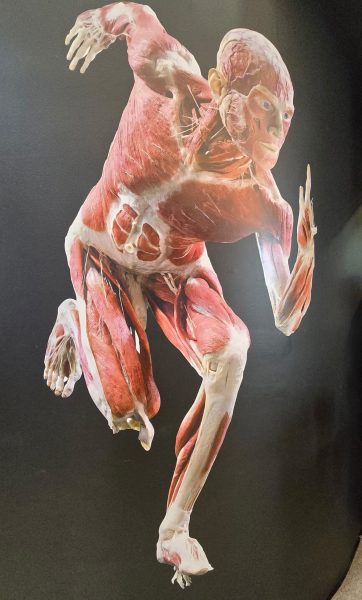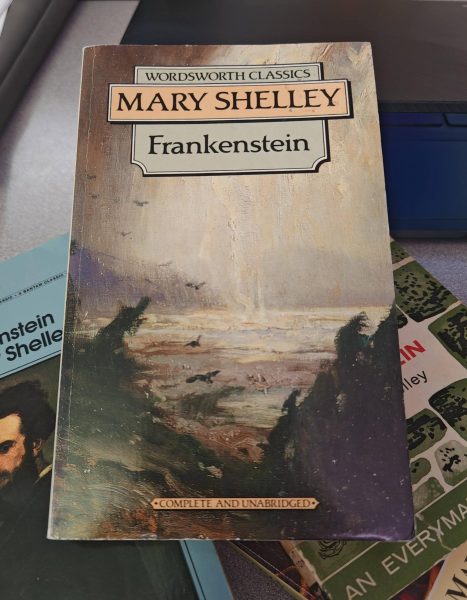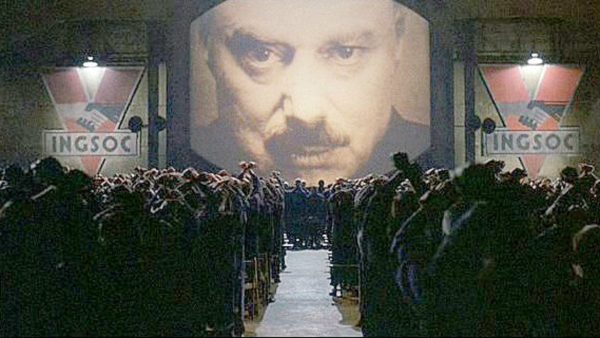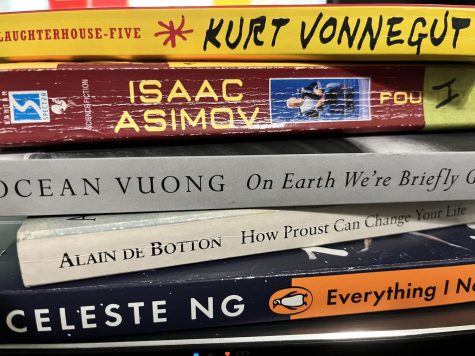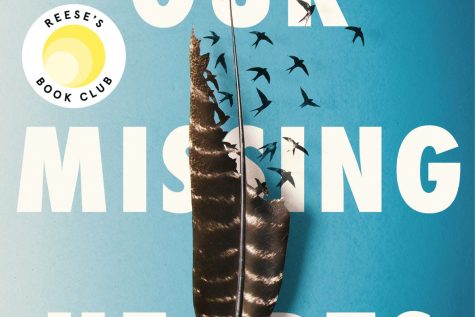CivilWarLand in Bad Decline: A Dystopia Too Close for Comfort
Man is good. Or are we? The perennial debate about the core nature of humanity is still being argued, eons on, because the statement: ‘Man is good’ appears to be just as contractidible as it is defensible. For every triumph of goodness there is travesty, for every human Saint, there are demons, for every Mother Theresa, there is a Charles Manson. Or so it seems. George Saunders, however, argues otherwise in his first book and collection of short works. The overarching themes presented in Civilwarland in Bad Decline seem to screech, unequivocally: “NO! MAN IS BAD!”.
In his 6 short story-1 novella (which is longer than short story, but not quite long enough to be it’s own novel) collection, Saunder’s often implements a sort of demented magic realism– it is a lowly amusement park employee who speaks to ghosts, a despondent but kind hearted salesman who can steal memories. However, the hyper-realistic flaws of the protagonists– each one of whom will break your heart, be forewarned– and the inherent truths they seem to understand and disperse are enough to leave you breathless, gutted. “I have a sense that God is unfair and preferentially punishes his weak, his dumb, his fat, his lazy. I believe he takes more pleasure in his perfect creatures, and cheers them on like a brainless dad as they run roughshod over the rest of us.” (The 400 Pound CEO)
In short, Civilwarland in Bad Decline is a depressing book, but a riveting one with immense value all the same. While Saunders highlights the awfulness, the greed, the lust and the revolting worst in people, throughout the book’s scant 177 pages the stories never once lose their humanity. I personally have never been a fan of dystopian or science fiction, but in his novella ‘Bounty’ Saunders writes a (perhaps not so) distant reality of the life of ‘Flawed’s’, a subhuman race that was created by genetic mutations, and who are often enslaved and abused at the hands of ‘Normals’, the genetically superior. Not once throughout the novella did I question the plausibility of the world, nor was I puzzled trying to understand it. Herein lies Saunders’ greatest strength: his ability to weave the absurd and actuality so tightly together, it makes you genuinely examine your own life. Saunder’s protagonists seem to contradict themselves– they are elegant in their misfortunes, find pride despite their brokenness, and some even a necessary quietude in death. In this way, Civilwarland in Bad Decline stays true to human nature, no matter how far-fetched their situation. The wit, humor and endearing personalities of his protagonists only add.
The great story writer Kurt Vonnegut’s sixth rule of short story writing is: Be a sadist! This is advice Saunder’s vehemently takes to his heart throughout his 7 works. In a masterfully unique manner, Saunders depicts the brutal beauty of being human, of loving others and letting them down. He writes characters who are ignoble martyrs, dystopian heroes, sympathetic evildoers, but above all else humans. There aren’t really any happy endings in Civilwarland in Bad Decline, but that might just be the point. Yes, perhaps Saunder’s estimation of human nature is wrong, perhaps it could even be called misanthropic, but his writing is never once untrue. And this is how Civilwarland in Bad Decline makes it’s scenes of bloody gore, it’s heartbreak and the bleak outlook that at times dominate the text, worth reading. In the most terrifying, most bone-chillingly valuable manner possible, no matter the page, we find the scariest thing of all in Saunder’s words: Ourselves.
“Sweet Evelyn, I think, I should have loved you better.
Possessing perfect knowledge I hover above him as he hacks me to bits. I see his rough childhood. I see his mother doing something horrid to him with a broomstick. I see the hate in his heart and the people he had yet to kill before pneumonia gets him at eighty-three. I see the dead kid’s mom unable to sleep, pounding her fists against her face in grief at the moment I was burying her son’s hand. I see the pain I’ve caused. I see the man I could have been, and the man I was, and then everything is bright and new and keen with love and I sweep through Sam’s body, trying to change him, trying so hard, and feeling only hate and hate, solid as stone.” (Civilwarland in Bad Decline)
Your donation will support the student journalists of Carnegie Vanguard High School. Your contribution will allow us to cover our annual website hosting costs and fund field trips, competition fees, and equipment. We appreciate your support!

Howdy! My name is Sofia Hegstrom and I am a senior who loves to read.

